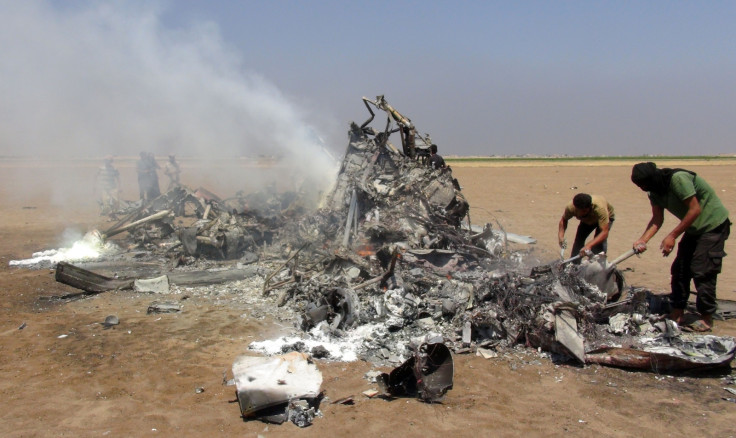Russia and Damascus regime need to 'show restraint' in Syria says John Kerry
US Secretary of State's comments come after Russian helicopter was shot down in Aleppo.

Moscow and Damascus should stop their military offensives in Syria, the US Secretary of State has said, only hours after a Russian helicopter was shot down in Aleppo. Syrian government forces and Russia's military say they are carrying out a humanitarian operation to relieve the northern city of Aleppo and have dropped leaflets telling fighters to surrender and civilians to leave.
But US officials say the operation's goal is to evacuate civilians from the city so they can then attack the rebels holding out there. Some 25,000 people are thought to be trapped in the area.
"These are important days to determine whether or not Russia and the Assad regime are going to live up to the effort to end the violence and to resume peace talks," John Kerry told reporters. "The evidence thus far is very troubling to everybody," he said.
On Monday 1 August, a Russian Mi-8 helicopter was shot down over rebel-held territory in northern Syria, killing all five people on board in the heaviest loss of life in a Russian operation since the start of the conflict. General Sergey Rudskoy, chief of the main operations department of the Russian General Staff said the helicopter was shot down over an area controlled by Al-Nusra Front.
The UK-based Syrian Observatory for Human Rights said that two nights of shelling by rebel forces killed at least 30 people, including children and women. A humanitarian crisis looms in eastern Aleppo as the government siege essentially cut the area off from the rest of the country.
The latest broadside by Kerry against Russia comes as think tank the Royal United Services Institute released a report on Monday 1 August saying that western policy-makers needed to work between Russia and Iran to resolve the conflict in Syria. The London-based security think tank said that the Syrian regime knows Tehran is central to prevent its collapse although it prefers Russian support as Moscow is less focused on the role of militias.
"While Iran and Russia are co-ordinating closely on the ground to advance the war, they are less bound together in terms of their goals, and there is little trust between the two over their respective long-term aims in Syria," the report titled Understanding Iran's role in the Syrian Conflict, said.
Russia took many by surprise when it announced a drawdown from Syria in March 2016 amid concerns that Moscow is seeking to use Syria as a bargaining chip to resolve the Ukraine question, at the expense of Iran's interests in Syria. RUSI said that Iran wants to preserve its ally, keep its supply lines to Hizbullah in Lebanon, and tackle Isis.
"Given these interests, and the pre-eminent role of the Islamic Revolutionary Guard Corps (IRGC) in Iran's policy on Syria, Iran is likely to maintain its significant involvement in the conflict for the foreseeable future," the report concluded.
© Copyright IBTimes 2025. All rights reserved.






















